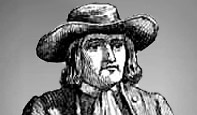At the same time, there is no need always to attempt the greatest miracle possible. There is good sense in seeking to accomplish smaller ones to start with; such as healing the sick, making the lame walk, and the blind see. I have no experience which allows me to comment on Harry Edwards’s claim that we are just getting sufficient knowledge to appreciate that the Gospel healings should be taken literally. I can only say that in his books he says all the right things; that it is God who heals, the healer is only the channel for Divine grace; that no-one can promise to heal, healing may come or it may not; that while faith in the healing process is not necessary, obstructions can occur in the patient, which prevent healing. It is when he writes about “spirit guides” that I become uneasy. For whilst I accept that there are mediums, who display extraordinary knowledge, and possibly power, I do not want to get involved with them. Yet we are all involved with the spirit world to some extent. It is the world in which we live and move and have our being.
Let me explain. For many years I have considered that the most dry-as-dust legal argument in court is an exercise in thought transference between advocate and judge or jury: indeed rather a sophisticated one. Of course one uses reasoned argument, but the happy turn of phrase, the elegant example, are prompted by an instinct for what will appeal to one’s audience. Ideally the speech is the creation of the advocate and his audience. And if you are not getting across to your audience, and you know this well enough at the time, the best thing you can do is to sit down. How does all this happen, unless there is a measure of thought transference between those involved?
I am equally convinced that thought transference can occur at a distance, as well as in Court where advocate and judge are within sight of each other; although I think this is much more rare. We all know that physical separation does not destroy family affection; it hardly makes any difference to it. But a harsh, cruel word injures that affection, whether the physical proximity be small or great. If something as complicated as emotion operates at a distance, may not thought transference do so as well. Goethe in one of his songs wrote,
Ich bin bei dir; I am with thee;
Du seist auch noch so ferne, though thou art still so far,
Du bist mir nah; thou’rt near me;
which surely expresses the same thought or longing. Harry Edwards insisted that healing can occur at a distance. If it can take place at all, I am easily persuaded it can take place at a distance.
There have been healers in every age, and in every society. Jesus was not alone. In superstitious ages they were often condemned as witches; but even in Stuart times there was a man in Dublin, who was a respectable member of society, a doctor and a magistrate, and therefore above prosecution, who was a well known healer. Many doctors are healers in an unobtrusive way; we all instinctively prefer some doctors to others, because they give us more confidence. Sir Thomas Browne, who wrote Religio Medici in the 17th century, was regarded as a most sensitive physician.
Whether it is a Divine gift or a skill that can be learned is a difficult question; but not for the healer. Some healers are utterly unaware they have the gift, apparently, until suddenly circumstances reveal to them that they have it. As often as not, they seem to be appalled. To have the gift, and not use it, must seem almost like blasphemy. If with some it is a skill that can be learned, the chief difficulty, as always, must be to start. Normally, when one can do something, one forgets the process of learning. It is the same learning to ride a bicycle or conducting a prosecution. Indeed one should and must forget the learning; otherwise one never practises the skill with true confidence. It is the same with religion; the self-flagellation that takes place in the C.of E. every Sunday (if one took it seriously) would disable anyone from doing anything!
